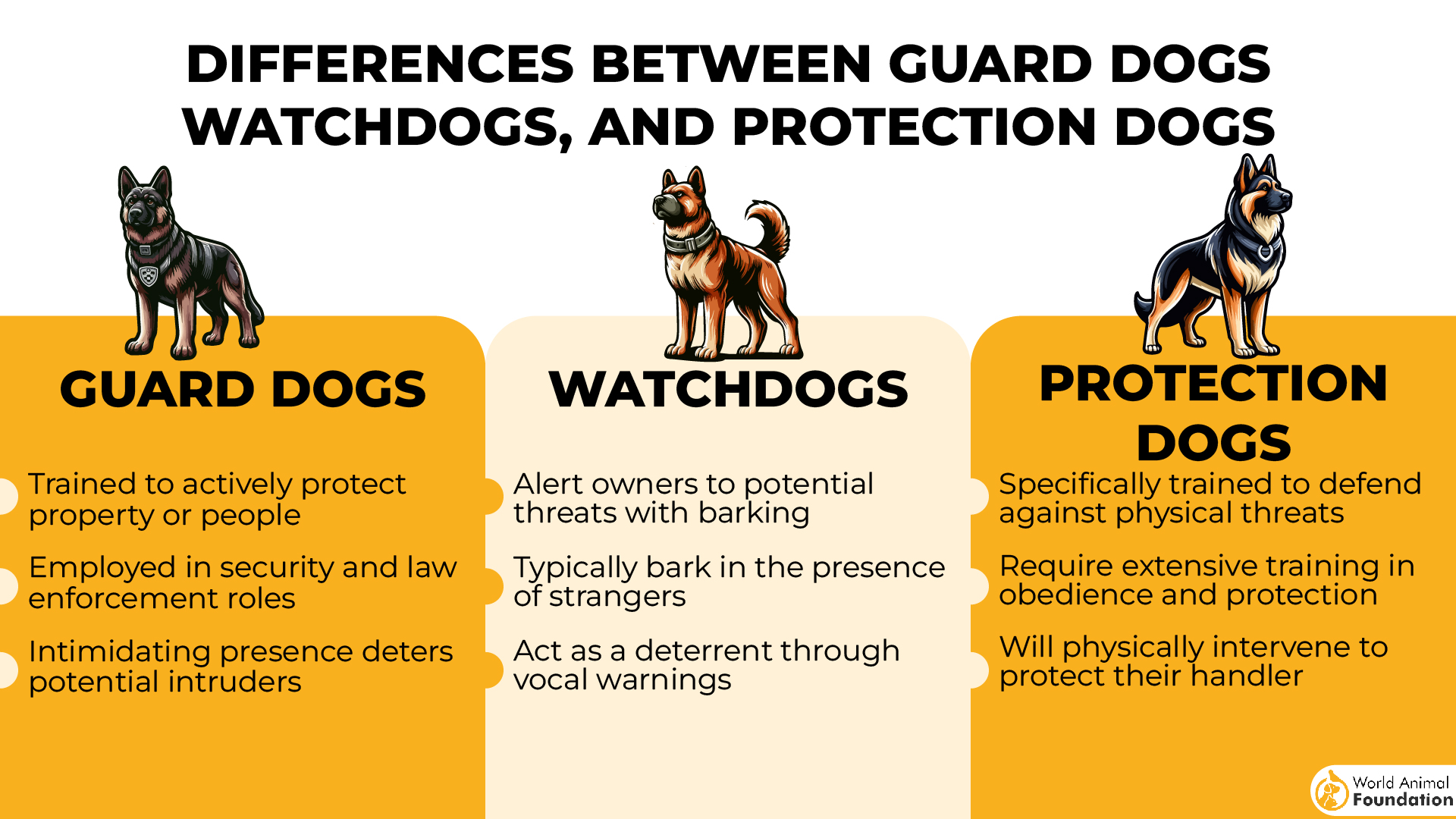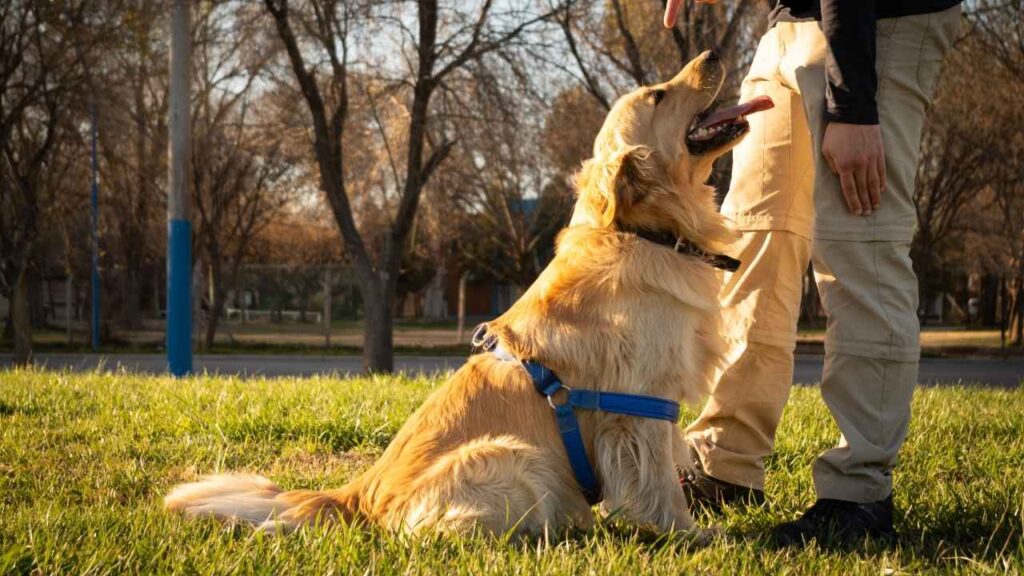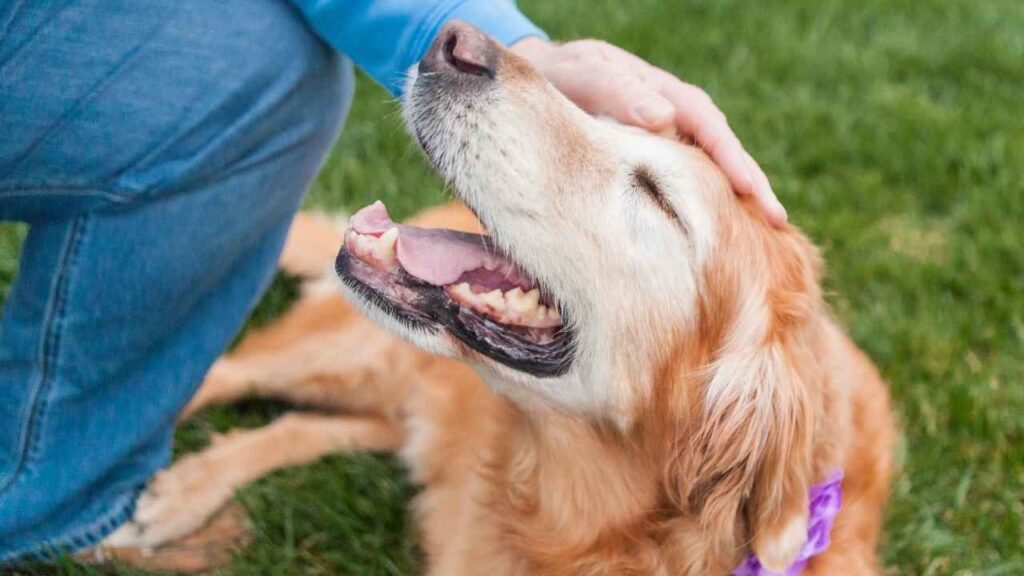Golden Retrievers are often celebrated for their friendly demeanor, intelligence, and unwavering loyalty, making them one of the most beloved family pets. However, when it comes to serving as a reliable guard dog, their suitability is frequently debated. Known for their affable nature, Golden Retrievers typically greet strangers with a wagging tail rather than aggression. While their loyal and protective instincts cannot be overlooked, their inherent friendliness may not align with the traditional guard dog role. Exploring the capabilities and limitations of Golden Retrievers as protectors can offer valuable insights for potential dog owners seeking a balance between companionship and security.
When you think of guard dogs, big, intimidating breeds like German Shepherds or Rottweilers probably come to mind. But what if I told you that the lovable Golden Retriever—a breed better known for snuggles and family-friendly vibes—might also be capable of protective duties? Yep, those furry rays of sunshine might surprise you.
If Golden Retrievers are not your go-to choice for a guard dog due to their sunny dispositions and love for, well, just about everyone—including total strangers! Their friendly nature and gentle personalities make them more likely to offer a burglar a pleasant smile. But don’t write them off completely! With the proper training (and patience), a Golden Retriever can learn to keep an eye on things—don’t expect them to be intimidating by default.
Now, let’s address the size factor. Golden Retrievers aren’t precisely giants, so if you’re dreaming of a colossal canine like a Great Dane, prepare for a dose of reality. But they’re no lapdogs, either. They’re that perfect middle ground—big enough to command attention but not so massive that they’ll take over your couch (well, they’ll try anyway). Think of them as the Goldilocks of dog sizes—just right!
Let’s explore how Golden Retrievers stack up as watchdogs and whether they can step into a guard dog role without sacrificing their signature friendliness.
Guard Dogs vs. Watch Dogs: Key Differences
Before we dive into Golden Retrievers specifically, let’s clear up some confusion between guard dogs and watchdogs.
Guard dogs are trained to actively protect their territory or family, meaning they might physically intervene when they sense a threat. Think Dobermans or Mastiffs—dogs bred for bravery and strength.
Watchdogs, on the other hand, act as your early warning system. They’re more like the neighborhood nosy neighbor who never misses a beat. These dogs are alert, quick to bark, and will let you know when something’s up—but they don’t necessarily have the instinct to confront an intruder.
Where do Golden Retrievers fit? Spoiler alert: they’re exceptional as watchdogs, but they’ll need some extra work to channel their inner bodyguard.
Why Golden Retrievers Can Be Effective Watchdogs?
Golden Retrievers are famously friendly and protective dogs, but don’t let their tail wags fool you. They’ve got an excellent sense of alertness and loyalty that makes them great at detecting when something isn’t right. The golden retriever protect their family with love and loyalty.
Their bark might not sound like a thunderclap, but it’s enough to make a stranger pause. Plus, they’re extremely intuitive compared to other dogs. Their protective instincts pick up on their owner’s cues and can sense when you’re feeling uneasy—making them natural allies in watching over your space.
Understanding the Protective Nature of Golden Retrievers
Golden Retrievers weren’t bred to guard; they were bred to retrieve game during hunts. But their loyalty and strong connection to their family mean they’re not afraid to step up when necessary. They might not lunge at an intruder, but don’t underestimate their determination to defend those they love.
A well-socialized Golden will instinctively position themselves between their loved ones and a perceived threat. That’s protective behavior, even if it comes wrapped in a golden fur coat and a goofy grin.
Training Tips for Golden Retrievers as Guard Dogs
If you’re thinking of training your Golden Retriever to be more protective, here are some practical tips:
-
Start with basic obedience: Commands like “sit,” “stay,” and “come” are non-negotiable. They are highly trainable. A well-trained dog is a reliable dog. These sweetest dogs are surely showcase exemplary obedience.
-
Introduce boundary training: Teach this popular dog breed to recognize and respect the boundaries of your home or yard.
-
Use positive reinforcement: Goldens are sensitive souls. They respond better to treats and praise than harsh discipline.
-
Expose them to different scenarios: Proper socialization is key. Introduce them to different people, sounds, and environments in young age so they can learn what’s normal and what isn’t.
-
Hire a professional if needed: If you’re serious about guard dog training of your family pet, consult a trainer who specializes in protection work.
Golden Retrievers Compared to Traditional Guard Dog Breeds
Let’s be real: Golden Retrievers aren’t going to replace the Belgian Malinois in military or police work. They lack the aggressive edge and sheer intensity that some traditional guard dog breeds bring to the table. PetPlan describes them as reliable, loyal, kind.
However, they some of the best service dogs out there! Their intelligence, eagerness to please, and naturally gentle demeanor make them rockstars in this role. Whether it’s guiding someone with visual impairments, assisting individuals with mobility challenges, or providing emotional support, Goldens can do it all—and they do it with a wagging tail and a big heart.
As far as its about their guard duties, they’re way less intimidating for everyday life. Want a dog that scares off intruders and is extremely loyal but won’t make your house guests feel like they’re under interrogation? A Golden might strike the perfect balance.
The Role of Socialization in Shaping a Golden Retriever’s Behavior
Socialization is everything when it comes to shaping a Golden Retriever’s temperament. Exposing them to various people, pets, and situations from an early age helps ensure they’re confident but not overly timid. Orvis claims they are family oriented and love being with family.
A well-socialized Golden is more likely to react appropriately to threats rather than barking at the mail carrier every single day (though, let’s be honest, that might still happen). Plus, socialization strengthens their bond with you, which is critical for any kind of protective behavior. It also improves this breed’s potential to be the best familys by working on their natural inclination to protect you.
Limitations of Golden Retrievers as Guard Dogs
Golden Retrievers, while amazing in so many roles, do have a few limitations when it comes to guarding. The truth is, they’re just so friendly.
These dogs are the poster pups for a warm welcome—tail wags, goofy grins, and the ever-hopeful eyes that seem to say, “Are you here to play with me?” Sure, they might bark at a stranger at first (a polite nod to their protective instincts), but don’t be surprised if that bark quickly turns into an invitation for belly rubs or a game of fetch. AKC says they are extremely friendly and loving, even to the strangers!
Their naturally friendly disposition, which makes them so well-suited as family companions, service dogs, and therapy animals, doesn’t lend itself to the no-nonsense attitude of a traditional guard dog. A Golden Retriever puppy tends to view the world—and everyone in it—as a potential friend. They don’t go to great lengths to size up people as threats; instead, they assume most people are there to toss a ball or scratch behind their ears.
That said, Goldens are loyal to the core, and their love for their family means they will step up if they sense true danger. While being non-aggressive, they might not strike fear into the hearts of intruders, they’ll alert you with a bark and stay by your side to protect you in their own way.
For most people, their loving companionship and obedience are more than enough, and any guard-like behavior is just a bonus. They’re not typically watchdogs, but they’re champions of making you feel safe, loved, and never alone.
They also don’t have the imposing stature or natural aggressiveness that traditional guard dogs possess. If you’re looking for a dog to physically deter intruders, a Golden might not be your top pick.
Are Golden Retrievers Suitable for Guarding Roles?
The short answer? It depends on what you need.
WebMd says they are mascular and brawny. If you’re looking for a dog that will alert you to potential threats and offer a protective presence without the risks of aggression, a Golden Retriever might be perfect. They’re loyal, intelligent, and incredibly loving—a combination of qualities that makes them fantastic family protectors.
However, if you’re looking for a dog that’s naturally intimidating and physically protective, you might want to consider another breed.
Conclusion
Golden Retrievers are like the lovable, huggable superheroes of the dog world. While they’re not your traditional guard dog, their loyalty, intuition, and alertness make them excellent watchdogs and occasional protectors. If you’re willing to put in a bit of extra training, your Golden can step up to the plate while still maintaining their signature golden charm.
At the end of the day, a Golden Retriever’s best trait isn’t their bark or their bite—it’s their heart. And honestly, isn’t that what we all want in a dog?
Golden Retrievers are generally not considered ideal guard dogs due to their friendly and gentle nature. Bred primarily for companionship and retrieving tasks, they are known for their sociability and warmth towards strangers, which can make them less effective at intimidating intruders. While they possess an innate intelligence and a willingness to please, which aids in training, their natural disposition is more suited to being family pets and therapy dogs. For those seeking a pet that provides protection, breeds specifically developed for guarding, such as German Shepherds or Rottweilers, might be more appropriate.






